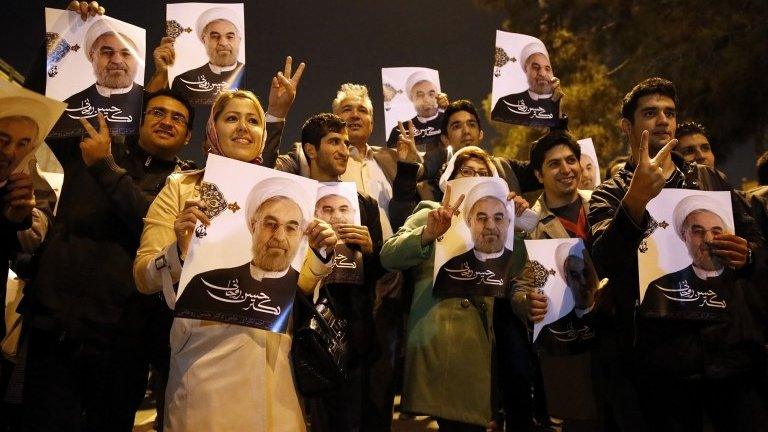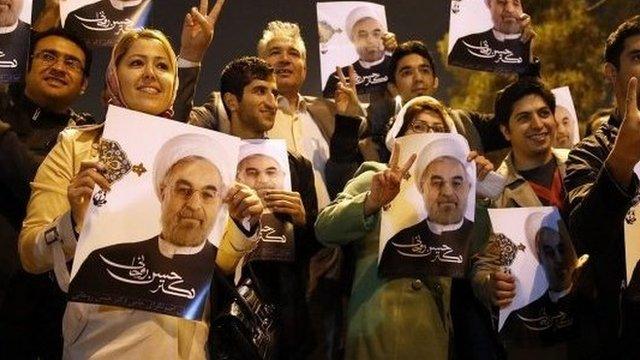Nelson Mandela death: A rare saintly politician
- Published
President Obama on Mandela: "He no longer belongs to us; he belongs to the ages"
In his tribute, President Obama said that as a youngster, like millions of others, he drew inspiration from Nelson Mandela - his first ever political action was a protest against apartheid.
In one of the biographies on Mr Obama there is a very vivid description of that event and how the young student came alive in that moment, and discovered the power of his words.
It is part of the meaning of Mandela that so many who are now middle aged, who were interested in politics, particularly left-wing politics, grew up alongside Mandela's struggle, saw themselves mirrored in him.
First, loathing an insufferable injustice; admiring a symbol; a man condemned as a terrorist; in prison, a living martyr; an emblem of hope, diminished but not crushed.
A conventional symbol, perhaps, for the left. But then as something else, something less expected. Something even greater than a hero leading the vindication of victory.
A leader who stood for peace and forgiveness in a country that seemed to stand on the brink of civil war.
A man who gave up power that could have been his for life. A leader who urged his people to believe that there is a greater future and a greater dignity in forbearance than revenge.
Perhaps the emotion of that generation of leaders today is because they looked at Mandela and saw their better selves reflected back.
Mr Obama said that Mandela "no longer belongs to us, he belongs to the ages".
The ages are already beginning to define him, as a rare example of a good politician.
In the United States, a country that still has difficultly healing the wounds of its own civil war so long ago, that struggled for so many years against legally imposed racism, Mandela is an immensely important figure. There are always, constantly, splits in the road.
Mandela stands firmly for one path.
The path of Martin Luther King, the path of patience and the belief that sometimes it is better to suffer a little longer, than to bring righteous retribution down on the heads of the enemy.
When I shook hands with Mandela, a reporter covering Chancellor Gordon Brown's visit to South Africa, he was already frail and it was already, for all of us, like visiting a shrine.
Mr Obama, quoting the man himself, said: "I am not a saint unless you think of saint as a sinner who keeps on trying."
It is as good a definition as any.
For many, Mandela is the closest the world has to a secular saint.
Over the next few days we will see his canonisation, and there will be very few who will want to play the part of devil's advocate.
- Published3 December 2013
- Published3 December 2013
- Published1 December 2013
- Published25 November 2013
- Published25 November 2013

- Published25 November 2013

- Published20 January 2014
- Published24 November 2013